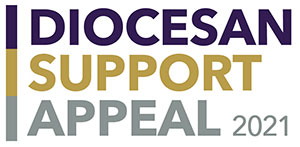 CHARLOTTE — Even as our communities continue to deal with the pandemic, parishioners across the Diocese of Charlotte responded generously to support the ministries and mission of the Church in western North Carolina.
CHARLOTTE — Even as our communities continue to deal with the pandemic, parishioners across the Diocese of Charlotte responded generously to support the ministries and mission of the Church in western North Carolina.
The 2021 Diocesan Support Appeal “Love Thy Neighbor” saw support from 13,621 donors who pledged more than $6.2 million, surpassing the 2021 goal.
Overall, 21 percent of registered parishioners across the diocese shared an average gift of $456, up from an average gift of $425 in the previous year’s campaign. Sixty-four percent of parishes and missions across the diocese reached or exceeded their goal for the appeal.
Parishioners in all 92 parishes and missions in the Charlotte diocese fund the DSA, which supports more than 50 ministries and programs that serve thousands of people across the diocese. Most notably, 33 percent funded social services through Catholic Charities Diocese of Charlotte for its counseling, food pantries, pregnancy support, refugee resettlement, elder ministry and other programs. Another 27 percent of DSA funding went toward educating the faithful through Catholic campus ministry, Catholic schools, faith formation, and young adult/youth ministries.
Parishes that exceed their goal keep the extra funds they collect, while parishes that fall short of their goal in donations from parishioners make up the shortfall from their operating budgets.
David Walsh, the diocese’s new associate director of development, expressed excitement for the DSA and gratitude for its many supporters. “It is a blessing to be in a growing and vibrant diocese. In my short time here, I have met so many wonderful people whose generosity changes lives every day.”
The 2021 campaign continues the trend of the people of the diocese achieving the annual DSA goal every year.
— SueAnn Howell, Senior reporter

